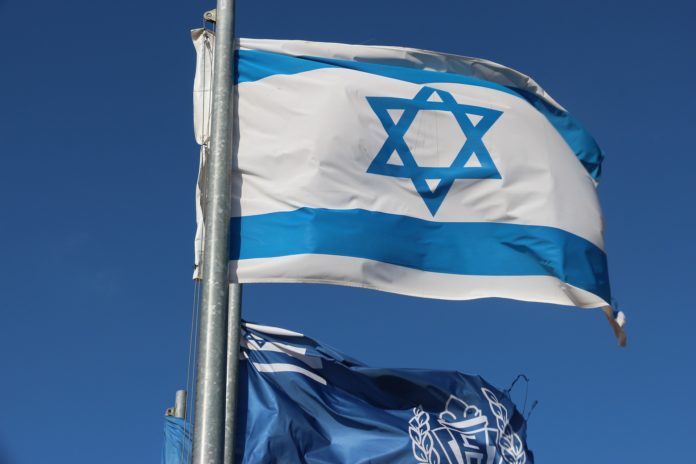The diary of any diplomat contains a fairly predictable array of engagements. The dinners and cocktail parties of the diplomatic circuit, political and geopolitical briefings, academic roundtables, and trade and business consultations. But for Daniel Taub, Israel’s ambassador to the United Kingdom, diplomatic life included a separate set of events and engagements, revolving around the Jewish calendar and religious practices.
“Israel was founded as a Jewish homeland” explains Taub. “and while my job is to represent every one of Israel’s citizens, Jewish or not, many people expect and want their engagement with Israel to reflect something of the Jewish experience.”
For Taub, the Jewish calendar has provided a variety of opportunities for outreach and engagement based around Jewish tradition. His first foray into merging faith and diplomacy was at Christmas, or more accurately Hanukkah time. Hanukah recalls the tensions between the ancient Israelites and the ancient Greeks who tried to impose Hellenistic ideals throughout the Greek empire. “I approached my friend the Greek ambassador” says Taub, “and explained that this festival commemorated the interface between ancient Greek and Jewish cultures. I suggested that we organize an event in which Greek and Jewish historians would discuss what happened then and its implications for today”.
The event, which started with Hanukkah candle-lighting and included Greek and Israeli foods, was a great success. Since then Taub has found other festivals a fruitful ground for cooperation. The Jewish ‘New year for trees’ served as a basis for a joint botanical event with Kew Gardens, while the exodus of Jewish slaves at Passover provided an opportunity for a series of events focusing on contemporary situations of slavery and deprivation.
One of the most striking opportunities arose when a Jewish fast day fell during the month of Ramadan. Taub invited Jewish and Moslem leaders to break their fast together at the ambassador’s residence. It was the first time many of the Moslems had been on “Israeli territory”, but the occasion was surprisingly moving and open, says Taub. “There’s something quite intimate about food, whether its eating or fasting. And sharing this moment together created a very special atmosphere – quite different from a usual political or diplomatic discussion”.
Organizing events around festivals and fasts is not without challenges. There are a host of logistical issues, from religious dietary restrictions to making sure there is time and place for people to worship according to their custom. There are other sensitivities too. It is often hard for an outsider to understand all the internal workings of a faith community. Inviting someone from one sector may generate discomfort or worse among other members of the community. But for Taub the investment has proven worthwhile. “In my experience people appreciate the efforts to take their needs and practices into account, even if sometimes you might slightly miss the mark.” Sensitivities run both ways of course. Taub notes that visitors to Jewish events are often nervous that they may say or do something inappropriate or even offensive, and stresses how important it can be to reassure people and put them at their ease.
Not only the festivals but also the Hebrew Bible can serve as a bridge between cultures and nationalities. Taub, who has written extensively about Jewish insights from the Bible, has made it a point to reach out to Churches and share Jewish understandings of texts which both faiths cherish. Invited to address the Synod of the Church of England, Taub began his lecture by giving the attending Bishops a crash course in reading Hebrew. He then studied a number of Biblical passages showing how an understanding of the Hebrew original gives added depth and new insights to the text.
“These texts have played a critical role in shaping our identities” he notes. “Studying them together and sharing our traditions in this way can be an extremely powerful experience”. He adds that often the most revealing moments come from discovering not what we have in common but where our differences lie, something that encourages us to see our or own faith perspectives in a new light.
Taub also served as a member of Israel’s negotiations with the Palestinians. Looking back on this period he feels that here too addressing issues of religious identity might have played a positive role. Noting that the negotiations were led almost entirely by westernized intellectuals from both sides, Taub recalled: “one of the few things the two sides agreed on was that we have to keep the religious leaders out of the negotiating room.” The fear, he explained, was that introducing highly charged issues of religious faith into the equation would take a soluble conflict and make it insoluble. Even if the religious participants were moderate, Taub added, the concern was that this would open the door to the extremists.
Looking back Taub considers this may have been a mistake. “It was misleading to think about keeping issues of faith outside the door” he says. “They were already inside. We just weren’t addressing it, or even admitting it”.
Should interfaith study and dialogue be in the diary of every diplomat? Taub’s answer is, well, diplomatic: “At its root diplomacy is about connecting the peoples of two countries. To do that it makes sense to look for the deepest and most vibrant points of connection we have. To me it seems that shared faiths and practices can help build meaningful bridges between peoples.”
Perhaps this is not such a surprising approach after all. Major religious institutions such as the Vatican are experienced and active in conducing diplomatic and international relations. If faith leaders can harness the language of diplomacy, maybe it is time for diplomats to harness the language of religion.




